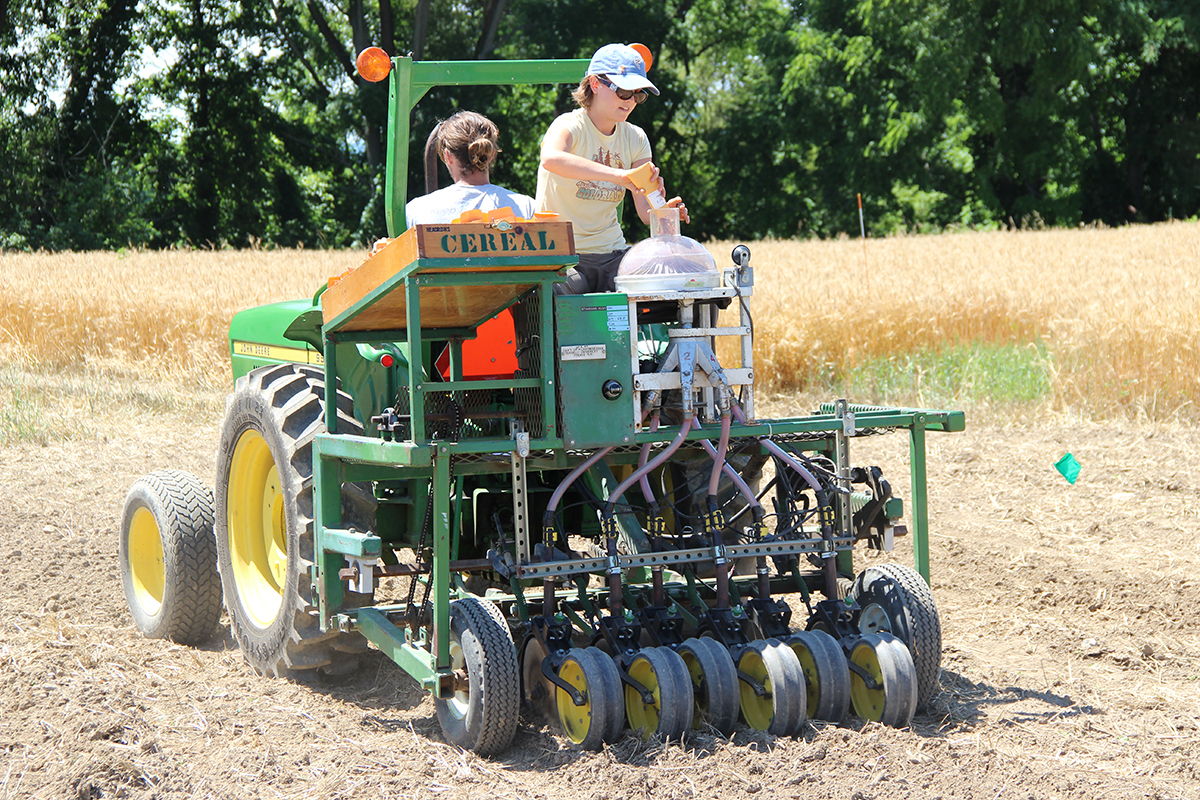By Krishna Ramanujan

Organic dairy farmers in the Northeast have taken a beating over the last several years due to extreme weather, but a new grant will support a project to guide them through these events.
Cornell researchers will lead a project funded by a four-year, $1-million grant from the U.S. Department of Agriculture’s Organic Agriculture Research and Extension Initiative to test new organic forage crop production strategies for the Northeast.
Project investigators will also conduct farmer surveys to try to understand some of the motivations for using or not adopting certain management practices.
“Organic dairy farming is an important part of the agricultural industry in the Northeast; we produce about 20 percent of the organic milk across the United States,” said Matt Ryan, an assistant professor of soil and crop sciences and the project’s principal investigator. “Our farmers are suffering. They have experienced a series of extreme weather events that have really cut into their production and profits.”
For example, the Cornell Musgrave Research Farm near Aurora, New York, received eight inches of rain in June 2015, a month when average rainfall is normally about four inches. But in 2016, June rainfall totaled less than one inch. Such fluctuations have affected yields of forage crops, such as corn silage for dairy cows.
To address these issues, Ryan will team up with researchers at the University of Vermont and the University of New Hampshire to test intercropping and double-cropping strategies to increase farmers’ capacities to absorb and adapt to extreme weather and restore farmers’ resilience in the face of setbacks. The team will conduct field experiments at sites at each of the three partner universities.
“We’ll implement the same exact treatments and we’ll be able to use that variability across the three sites to evaluate the performance of our treatments,” Ryan said.
With intercropping, researchers will add diversity by growing multiple crops at the same time – corn, sudangrass, sorghum sudangrass, and pearl millet – instead of the standard practice of growing only corn silage.
After a drought in summer 2012, farmers ran out of feed and had to cut winter rye cover crops to feed their cows, Ryan said.
Borrowing from that example, the group will also test a double-cropping strategy in which they harvest winter annual cover crops like triticale and winter pea, then plant an alternative crop like sorghum sudangrass in the spring “to get two harvests within one growing season, instead of just growing corn silage where you only get one harvest,” Ryan said.
In addition to conducting a farmer survey about managing for resilience, the group will also work with extension educators to promote crop insurance for organic farmers and communicate research findings to farmers throughout the Northeast.
Source:cornell.edu